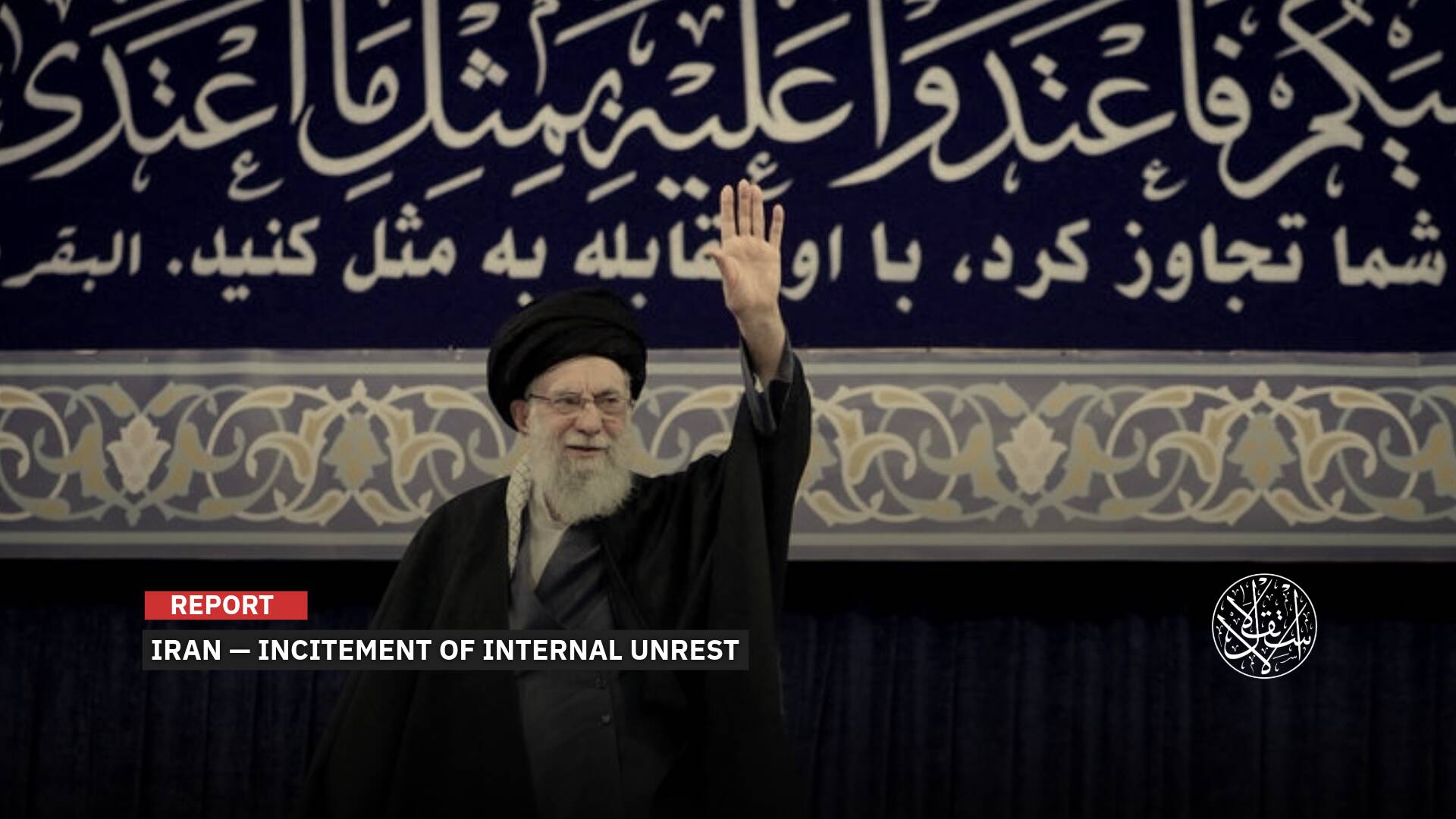Hezbollah Threat Raises Concerns About Lebanon-Cyprus Relations

Cyprus plays a significant role in bringing financial packages to Lebanon from the European bloc.
In a time when Lebanon and Cyprus, an EU member state, share "strong relations," the small Mediterranean island received a direct threat from Hezbollah amid the escalation with “Israel” since October 8, 2023.
Hezbollah's leader, Hassan Nasrallah, warned Cyprus in a televised speech on June 19, 2024, against allowing “Israel” to use its airports and bases.
Threatening Cyprus
"The Cypriot government must beware that opening its airports and bases to the Israeli enemy to target Lebanon means it has become part of the war, and the resistance will treat it as such," Hassan Nasrallah said.
The threat to Cyprus, geographically close at less than 200 kilometers from Lebanon, followed information received by Hezbollah indicating that “Israel,” which conducts annual drills on the small island, might use Cypriot airports and bases to attack Beirut if Israeli airports are targeted.
Hezbollah, also, stated, "If the enemy starts a war with Lebanon, all its coasts, beaches, ports, and ships will be threatened. They know they cannot defend themselves against a battle of this scale."
Nasrallah's statements came after the Israeli army announced "approval" of operational plans for an attack in Lebanon.
The Foreign Minister of Israel, Israel Katz, vowed on June 18 to eradicate Hezbollah in the event of a "full-scale war," amid ongoing escalation on the Lebanese border with occupied Palestine for more than eight months.
Cypriot President Nikos Christodoulides responded to Hezbollah's threats by stating that the Republic of Cyprus is not involved in any way in this war.
Christodoulides emphasized that Cyprus is part of the solution, not the problem, asserting that his country played a role recognized by the Arab world and the international community as a whole in establishing a maritime corridor to deliver humanitarian aid from the island to Gaza.
Hezbollah's warning to Cyprus has raised concerns about deteriorating relations with Lebanon, especially given the bilateral agreements and ongoing maritime border delineation negotiations between the two countries.
Observers believe any tension between Lebanon and Cyprus will negatively impact Beirut, especially since the European Union will support Nicosia against any threat to its security.
Hezbollah's rivals in Lebanon criticized attempts to expand the war to Cyprus without consulting the Lebanese state, which holds the decision-making authority on war and peace.
Lebanese Concerns
Lebanese media criticized Hezbollah's attempts to sour relations with Cyprus, which has economic and bilateral ties with Beirut and hosts a significant Lebanese community that resides and invests in the small island.
Lebanon, facing a severe economic crisis since 2019, which has led to a 90% loss in its lira value, relies on gas and oil exploration and enhanced cooperation with Eastern Mediterranean countries, especially Cyprus and Greece, for energy investments.
Beirut sees this as one of the necessary steps to address the severe economic situation gripping the country.
In response to the threats, Lebanon's An-Nahar newspaper reported that the Cypriot embassy suspended its visa issuance system starting June 20, 2024, in a first-pressure message to the many Lebanese who frequent the small island. Cyprus serves as an economic gateway for many Lebanese businessmen.
Although Cyprus is not a NATO member, it is part of the European Union and has strong alliances with the West, with international and Western interests at stake.
EU member states are obliged to defend each other in case of an attack, which applies to Cyprus, with a population of approximately 920,000.
Even Lebanon fears a diplomatic fallout with Cyprus after Hezbollah's public warning through its leader.
Moreover, Cyprus demands Lebanon adjust its maritime borders according to Line 23, agreed upon in the delineation treaty signed between the two parties on October 27, 2022.
Cyprus, which aspires to become a major player in the energy sector in the Eastern Mediterranean, possesses a key exclusive economic zone divided into 12 blocks, potentially rich in gas.
Therefore, the Ministry of Foreign Affairs and Emigrants of Lebanon immediately acted following Nasrallah's statements to avoid a diplomatic crisis with Cyprus.
In this context, the Minister of Foreign Affairs and Emigrants of Lebanon Abdallah Rashid Bouhabib contacted his Cypriot counterpart, Constantinos Kombos, expressing Lebanon's constant reliance on "the positive role Cyprus plays in supporting regional stability."
A Good Mediator
Lebanese nationals rank first among the top five nationalities economically investing in Cyprus.
Cyprus offers significant facilities for Lebanese nationals, with over 60,000 Lebanese residing there, and Lebanese businessmen dominating the real estate market in the neighboring country.
In 2023, Lebanon imported goods worth $447 million from Cyprus and exported $129 million to it in the same year.
Lebanese journalist Samir Assi emphasized that "the Lebanese state, mired in complex crises and facing a presidential vacuum since October 2022, does not want to expand the circle of tension towards Cyprus, fearing potential international isolation."
Assi told Al-Estiklal that “the Lebanese government maintains a strong relationship with Cyprus, which is a good mediator between Beirut and the European Union.”
“Cyprus plays a significant role in bringing financial packages from the European Union to Lebanon, whether to deal with the refugee crisis or to support some Lebanese state institutions.”
A bilateral agreement signed by Cyprus and neighboring Lebanon in 2004 obliges Beirut to prevent and halt illegal border crossings and irregular migration of individuals departing from its shores, which serve as an important gateway to Europe.

Assi noted that "Lebanon's official institutions have close cooperation with Cyprus, both in preventing migrants from reaching the European country and in providing support to the Lebanese armed forces."
“Any escalation by Hezbollah towards Cyprus will negatively impact the Lebanese state, which is trying to maintain good relations with the European Union amid the economic collapse and the need for European support on multiple fronts.”
Lebanon had been counting on signing an agreement to curb irregular migration to Europe in exchange for financial resources from the European Union, with Cyprus playing a role as the country most affected by the influx of migrants, according to Assi.
President of the European Commission Ursula von der Leyen announced in early May 2024 from Beirut assistance worth one billion euros to support "stability" in Lebanon, relying on "good cooperation" to combat refugee smuggling from the Lebanese coasts.
At a press conference following her meeting with the Cypriot president and Lebanon's caretaker Prime Minister Najib Mikati, she said, “She can announce a financial package worth one billion euros for Lebanon, available from this year until 2027, to contribute to "economic and social stability."
In contrast, many observers believe that any new escalation in Lebanon, extending the tension from southern Lebanon towards the Mediterranean, will send more migrants to Europe.
Migrants, particularly those from northern Lebanon, often embark on boats seeking a better life in European countries, with Cyprus being a common destination.
Cyprus is a "frontline state" on the Eastern Mediterranean migration route, with asylum seekers making up over 5% of the population of 915,000 in the government-controlled areas of the island, a record in the European Union.
Cyprus stated that “the war in the Gaza Strip, which has heightened tensions on the Israeli-Lebanese border, has weakened Lebanon's efforts to monitor its territorial waters and prevent migrant boats from departing.”
Sources
- Cyprus rejects Hezbollah's claims about Israel's possible use of its airports [Arabic]
- Cypriot President: I will go to Lebanon on May 2 - a “financial package” and support for the army [Arabic]
- Cyprus is pressing to end the maritime demarcation with Lebanon [Arabic]
- Diplomatic crisis between Lebanon and Cyprus after Nasrallah's threat -- The embassy in Beirut stops visa transactions [Arabic]












